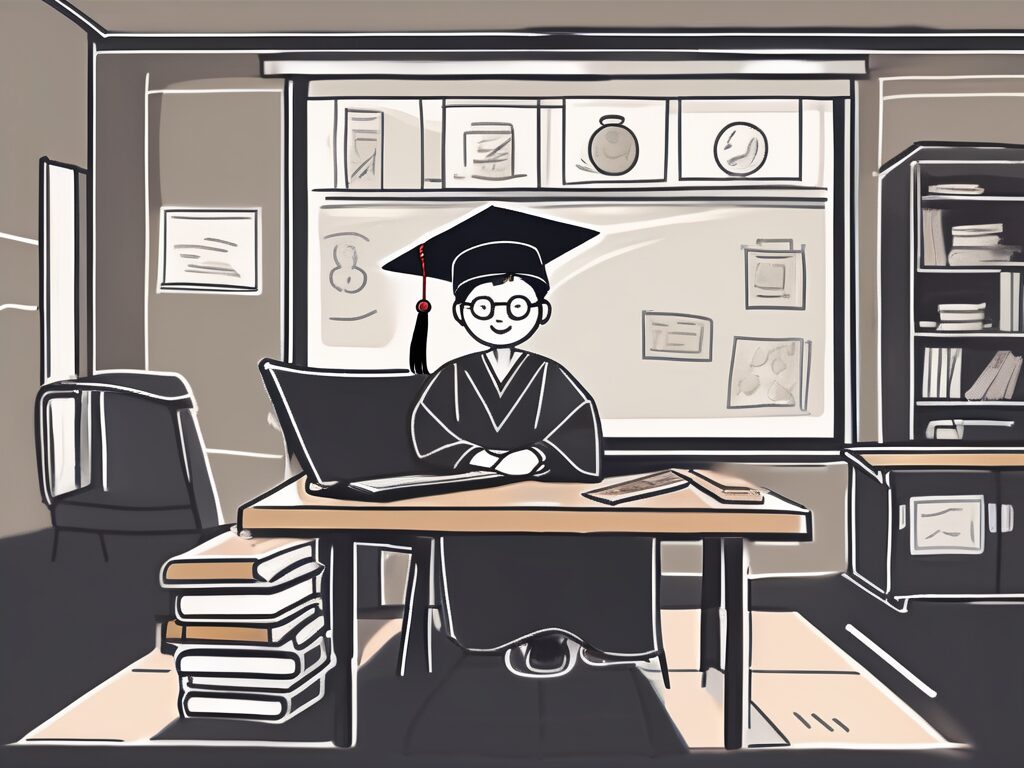Singapore, a vibrant city-state with a diverse cultural heritage, is a popular destination for teachers from around the globe. With its high standard of living and excellent education system, it’s no wonder that many educators are drawn to this Asian gem. If you’re a teacher with a Postgraduate Certificate in Education (PGCE), you might be considering a move to Singapore. But before you pack your bags, there are a few essential things you need to know about obtaining a teaching visa in Singapore.
Understanding the Singaporean Education System
The first step towards teaching in Singapore is understanding the local education system. Singapore’s education system is renowned for its rigour and high standards, consistently ranking among the top in global education rankings. The system is divided into primary, secondary, and pre-university stages, similar to the UK’s system.
However, there are some key differences. For instance, Singapore places a strong emphasis on bilingual education. Most students learn English as a first language and their mother tongue (Mandarin, Malay, or Tamil) as a second language. Furthermore, the curriculum is highly centralised, with the Ministry of Education overseeing all aspects of education, including teacher training and curriculum development.
As a foreign teacher with a PGCE, you’ll likely find many similarities between the Singaporean and British education systems. However, it’s crucial to familiarise yourself with the local nuances to ensure a smooth transition.
Obtaining a Teaching Visa
Once you’ve familiarised yourself with the Singaporean education system, the next step is securing a teaching visa. In Singapore, this is known as an Employment Pass (EP), which is issued by the Ministry of Manpower. To qualify for an EP, you must have a job offer in Singapore and meet certain criteria, including a minimum salary threshold and possessing acceptable qualifications.
Your PGCE will be a significant asset in this regard. Singapore recognises the PGCE as a professional teaching qualification, which can increase your chances of securing a teaching position and, subsequently, an EP. However, it’s worth noting that the EP application process can be quite competitive, so it’s essential to prepare a strong application.
Furthermore, the school or educational institution that offers you a job will typically apply for the EP on your behalf. Therefore, it’s crucial to secure a teaching position before applying for the visa. This process can take several weeks, so it’s advisable to start your job search well in advance of your planned move.
Adapting to Life in Singapore
Moving to a new country is always a significant adjustment, and Singapore is no exception. While it’s a modern, cosmopolitan city with many Western influences, it also has a unique culture and way of life that can take some getting used to.
One of the first things you’ll notice is the climate. Singapore is located near the equator, which means it has a tropical climate. It’s hot and humid year-round, with frequent rain showers. While this can be a shock to the system initially, most people acclimate over time.
Another aspect to consider is the cost of living. Singapore is known for its high living costs, particularly when it comes to housing and car ownership. However, it’s also known for its high salaries, excellent public transport, and affordable food options, which can help offset these costs.
Finally, it’s worth noting that Singapore has strict laws and regulations, which extend to the education sector. As a teacher, you’ll be expected to uphold these standards and conduct yourself professionally at all times. This includes respecting the local culture and customs, which can be a rewarding experience in itself.
Building a Successful Teaching Career in Singapore
With your PGCE, a teaching visa, and a willingness to adapt to a new culture, you’re well on your way to building a successful teaching career in Singapore. However, it’s important to remember that success doesn’t happen overnight.
Building a successful career in Singapore requires patience, perseverance, and a commitment to continuous learning. The Singaporean education system is dynamic and constantly evolving, so it’s important to stay abreast of the latest developments and trends.
Furthermore, networking can play a crucial role in your career progression. Joining professional organisations and attending educational conferences can provide valuable opportunities to meet other educators, learn from their experiences, and gain insights into the local education scene.
Finally, remember to enjoy the journey. Teaching in Singapore can be a rewarding and enriching experience, offering the chance to make a difference in students’ lives while experiencing a new culture and way of life. So take the plunge, embrace the challenges, and look forward to the adventures that await in Singapore.
Advance Your International Teaching Career with The IQTS at UWE
Ready to elevate your teaching credentials and stand out in the competitive Singapore education landscape? The International Qualified Teacher Status (iQTS) programme at The IQTS at UWE is your gateway to achieving that edge. With our Level 7 qualification, you can overcome the barriers of strict international school requirements, enhance your career progression with a significant increase in promotion rates and salary, and connect with a global network of professionals. Don’t let isolation or a lack of understanding of international curricula hold you back. Our flexible online study options are designed to fit your busy schedule, ensuring you can balance work with professional development. Make Your Next Step towards a successful teaching career in Singapore with the iQTS programme.

